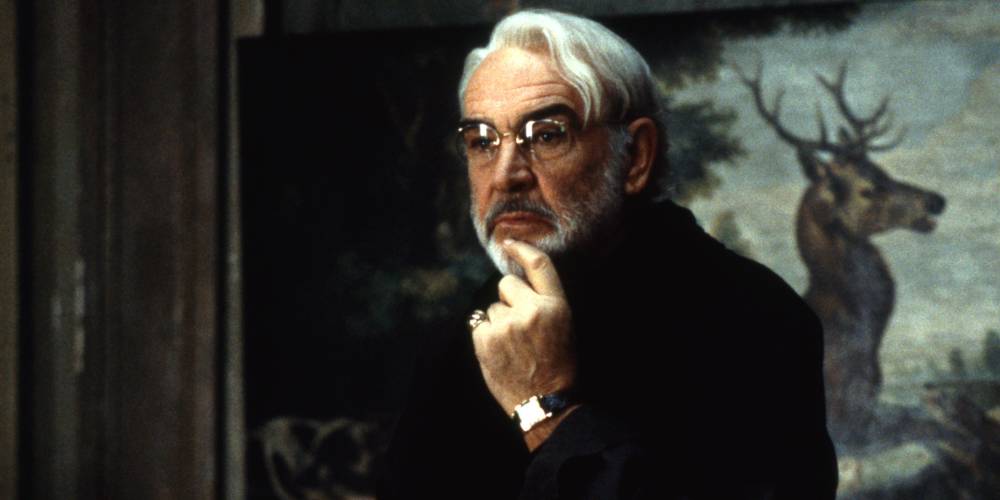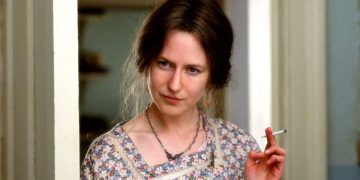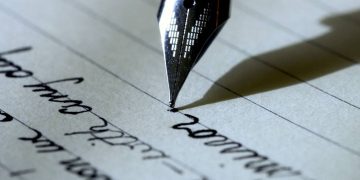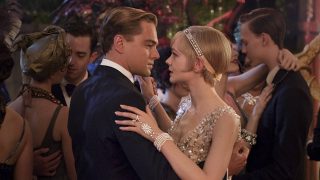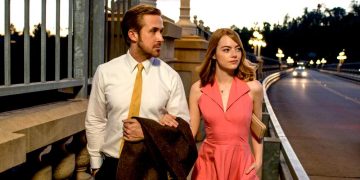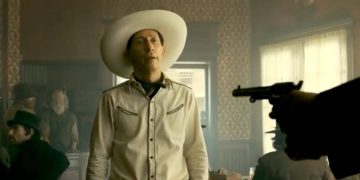Writing is one of the oldest mediums for the expression and recording of ideas, feelings, and lived experiences.
Cinema is first and foremost a visual art, but it will always have an inherent connection to writing and literature—that makes it the perfect art form for reflecting on the act of writing.
There have been so many great films featuring the subject of writing. They look at writing as a beautiful process, they examine the mystical quality of putting pen to paper, they explore the highs, lows, glory, and madness that can come with being someone who writes.
Here are some of the best movies about writers, authors, and writing, that really capture the effects of the written word.
7. Dead Poets Society (1989)
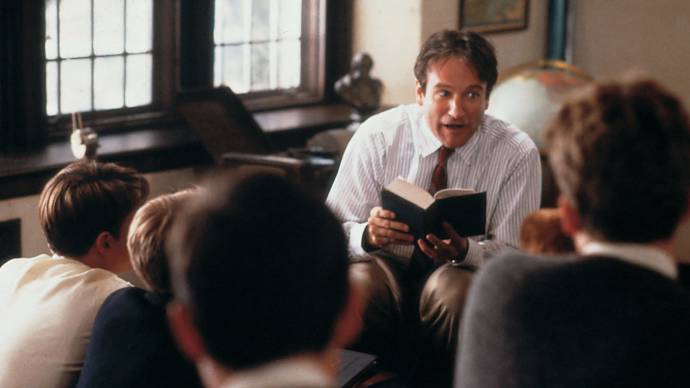
Directed by Peter Weir
Starring Robin Williams, Robert Sean Leonard, Ethan Hawke
Comedy, Drama (2h 8m)
This is the only film on this list that's specifically about poetry, and oh boy, does Peter Weir's iconic Dead Poets Society love poetry!
With Robin Williams in the titular role, he teaches the uptight boys of a rigid school system how to rebel and seize the day.
Sure, he assures them that law, medicine, and business are all important, but he also injects them with a desperately needed shot of romance: "But poetry, beauty, romance, love—these are what we stay alive for."
While it may border on saccharine at times, and while some of the "romantic" idealism hasn't aged so well, Dead Poets Society is one of the best films about writing and poetry ever made.
With Robin Williams as our literary guide, it's easy to fall in love with the words of this classic film for romantics.
6. The Shining (1980)
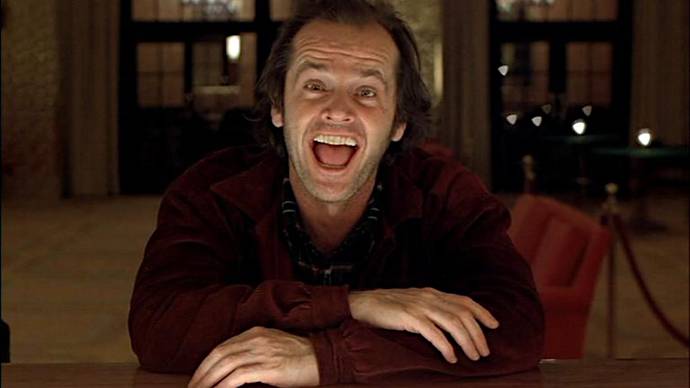
Directed by Stanley Kubrick
Starring Jack Nicholson, Shelley Duvall, Danny Lloyd
Drama, Horror (2h 26m)
"All work and no play makes Jack a dull boy." Anyone who's ever had to crunch out an essay for school has felt a little bit like Jack Torrance.
The Shining is about many things, but in particular, it's about a struggling writer who allows his demons to get the best of him. Stephen King (author of the original story) even said it's a semi-autobiographical look at how alcoholism almost ruined his life and career as a writer.
While that aspect is explored more deeply in the book than in the movie, Jack's difficulty with the writing process still causes a great deal of discontentment and frustration, which gradually deteriorates into full-blown insanity that ruins him and his family.
5. Fear and Loathing in Las Vegas (1998)
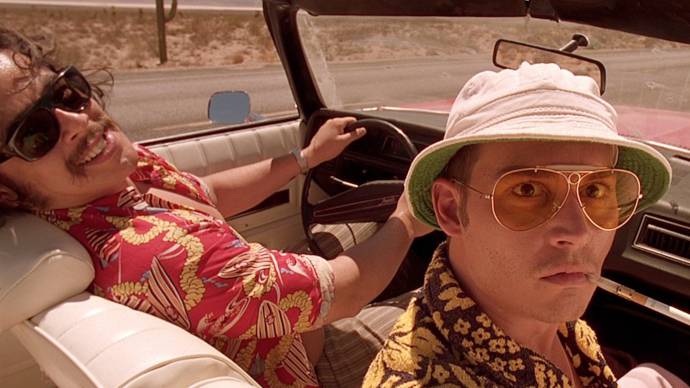
Directed by Terry Gilliam
Starring Johnny Depp, Benicio Del Toro, Tobey Maguire
Adventure, Comedy, Drama (1h 58m)
One of the most famous journalists of all time, Hunter S. Thompson was a pioneering force in the gonzo journalism movement. Adapted from his book of the same name, Fear and Loathing in Las Vegas is a semi-autobiographical tale about his various drug-induced exploits.
The film's plot is as all over the place as its characters, but it loosely follows Raoul Duke as he searches for the American Dream in Las Vegas for an article. However, psychoactive substances distract him and his associate, leading to a tale dripping with debauchery.
Expertly played by Thompson's real-life friend Johnny Depp, the film is a one-of-a-kind look at this man's writing process.
4. Midnight in Paris (2011)
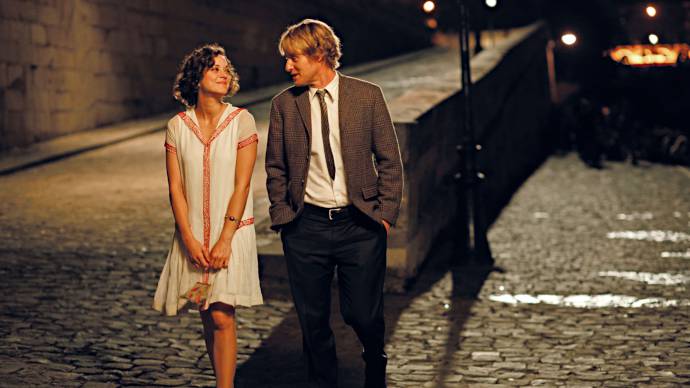
Directed by Woody Allen
Starring Owen Wilson, Rachel McAdams, Kathy Bates
Comedy, Fantasy, Romance (1h 34m)
While Dead Poets Society focuses on the best of romantic poets, Midnight in Paris similarly takes a look at the best authors of a bygone era.
Gil Pender is a screenwriter who takes a trip to Paris with his fiancée. However, after a rather unpleasant day spent with his wife-to-be's friends, he takes a lone walk through the streets of Paris.
While wandering, he mysteriously travels back in time and comes across the best writers of a generation: Ernest Hemingway, F. Scott Fitzgerald, Gertrude Stein. Salvador Dali even makes an appearance as well, but it's mainly about these legendary writers from the past.
Midnight in Paris is a stark examination of the negative effects of "Golden Age Syndrome," and it's one of Woody Allen's best films.
3. Adaptation (2002)
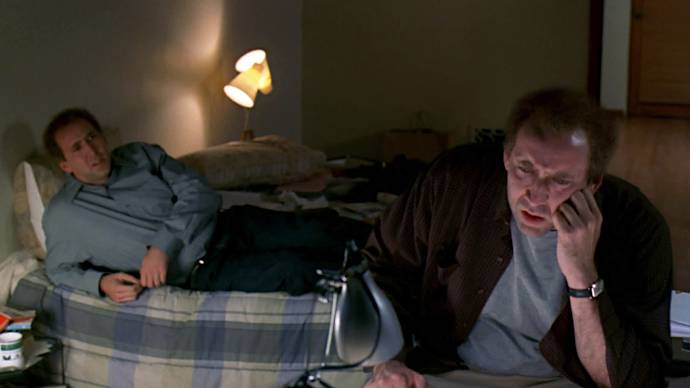
Directed by Spike Jonze
Starring Nicolas Cage, Meryl Streep, Chris Cooper
Comedy, Drama (1h 55m)
Charlie Kaufman is one of the most unique writers working in Hollywood today, whose works are cerebral, bizarre, and at times totally inscrutable. (If you've seen his films like Being John Malkovich or Synecdoche, New York, then you know all of this first-hand.)
With Adaptation, the creator becomes the subject: Charlie Kaufman writes a story about Charlie Kaufman's writing process.
The entire film is a commentary on what it means to write, the various twists and turns that a film takes along the way, all while taking subtle jabs at Hollywood's writing formulas and script gurus.
Perhaps the cleverest one on this list, Kaufman teamed up with Spike Jonze to create an immensely meta film. It takes several watches to get all of the in-jokes that Jonze and Kaufman make.
2. Barton Fink (1991)
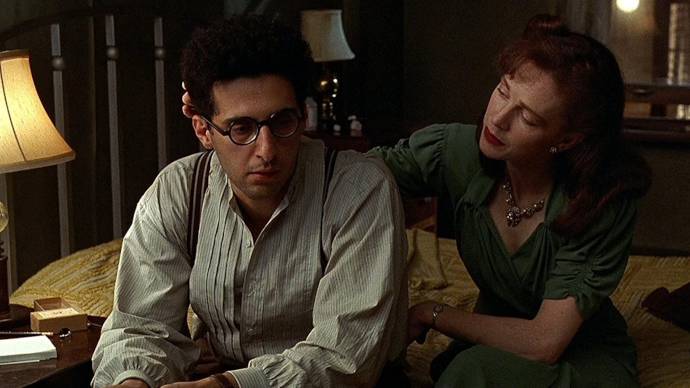
Directed by Joel Coen and Ethan Coen
Starring John Turturro, John Goodman, Judy Davis
Comedy, Drama, Thriller (1h 56m)
Leave it to the Coen brothers—a most magnificent writing duo—to make one of the best films about writing ever made.
Played by John Turturro, Barton Fink is a playwright from New York who decides that his voice is the best voice to represent the downtrodden, blue-collar workers of America.
However, he seems to have difficulty writing in the same conditions that those very downtrodden, blue-collar workers are often subjected to.
Barton Fink takes several unpredictable turns (like most movies by the Coen brothers), but the struggles of creativity and the writing process are at the heart of this story. Along with that, the film also analyzes the experience of writer's block in its most supernatural form.
With a bizarre ending that you probably won't see coming, Barton Fink is a story that has led to many different interpretations.
1. Finding Forrester (2000)
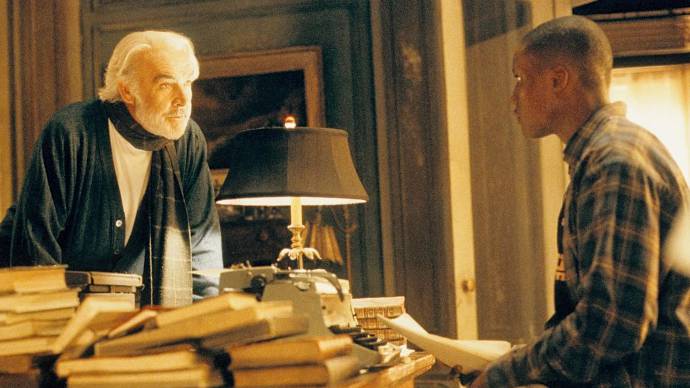
Directed by Gus Van Sant
Starring Sean Connery, Rob Brown, F. Murray Abraham
Drama (2h 16m)
Gus Van Sant touched our hearts with Good Will Hunting in 1997. Three years later, he did it again with Finding Forrester.
In many ways, this film is like a spiritual successor to Good Will Hunting, with both films centered on a troubled youth who demonstrates genius in a specialized area, coupled with a fabulous capacity for recall, but weighed down by a certain contempt for authority.
Similarities aside, Good Will Hunting and Finding Forrester are very different films in terms of tone and theme.
Finding Forrester focuses on a young man named Jamal, who stumbles into the apartment of an iconic, reclusive author while looking for his basketball. After a few hiccups, their relationship blossoms into one of Forrester acting as Jamal's writing mentor.
This mentorship shifts into a deep and meaningful friendship as Jamal comes to realize that his instructor needs help of his own.
Finding Forrester isn't just a film about writing; it's about life. And, to its credit, it approaches its themes—of class, privilege, loneliness, isolation—with much more nuance than the likes of, say, Dead Poets Society.
And the grand story unfolds between two men who just love writing.
